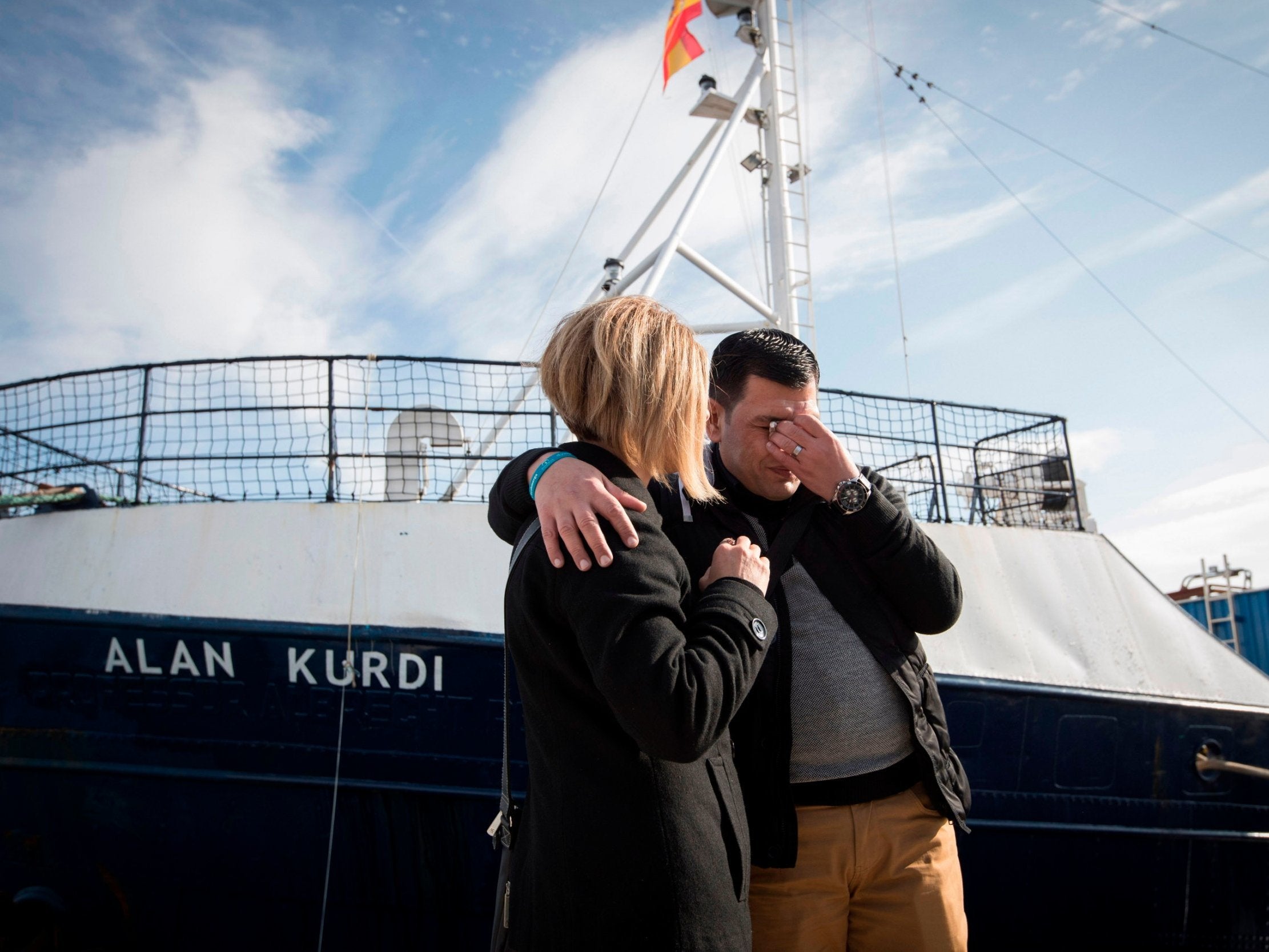It’s all well and good naming a boat after Alan Kurdi – but it means nothing if the world no longer cares
Since Alan’s death, a great many other men, women and children have ended up dead too – their hopes drowned as their lungs filled with water in the Med. They have not become symbols; they have not inspired campaigns


Your support helps us to tell the story
From reproductive rights to climate change to Big Tech, The Independent is on the ground when the story is developing. Whether it's investigating the financials of Elon Musk's pro-Trump PAC or producing our latest documentary, 'The A Word', which shines a light on the American women fighting for reproductive rights, we know how important it is to parse out the facts from the messaging.
At such a critical moment in US history, we need reporters on the ground. Your donation allows us to keep sending journalists to speak to both sides of the story.
The Independent is trusted by Americans across the entire political spectrum. And unlike many other quality news outlets, we choose not to lock Americans out of our reporting and analysis with paywalls. We believe quality journalism should be available to everyone, paid for by those who can afford it.
Your support makes all the difference.It is nearly three and half years since the death of Alan Kurdi, the little Syrian refugee whose body was washed up on a Turkish beach.
Kurdi – and the photographs of his corpse, being gently washed by the waters of Aegean – became an emblem of the refugee crisis that was enveloping Europe. He could have been anybody’s child: for a short time he was everybody’s.
In July of 2015 alone, more than 100,000 people had arrived in EU countries, largely from war zones and post-conflict regions in the Middle East and Africa. The crisis divided the continent.
On the one hand, we saw migrants pushed back at border posts by security forces; unloved, unwanted, forsaken. On the other, we witnessed the unprecedented openness of the German authorities, welcoming refugees with grace and open arms.
In Britain, politicians vacillated. After Kurdi’s death, The Independent – having decided to publish an image of his lifeless body on our homepage and on the front page of our print edition – petitioned the government to change its policy and to admit more refugees. David Cameron, then the prime minister, eventually confirmed that the UK would take in 20,000 people fleeing Syria; but the target was never reached.
On Sunday, a German ship operated by the charity Sea-Eye, which rescues refugees who get into difficulties crossing the Mediterranean, was renamed after Alan Kurdi.
A spokesperson for Sea-Eye said the decision would stand as a reminder “of what our work is really about…It is about actual persons, like Alan, Ghalib [his brother] and Rehena [his mother], who drown in the Mediterranean daily.”
Alan’s father, Abdullah, noted that the grief he felt for his lost family was shared by “thousands of families who have so tragically lost sons and daughter this way”.
They are both right of course, as was Abdullah Kurdi when he said: “My boy on the beach must never be forgotten.”
But does the world want to remember?
Since Alan’s death, a great many other men, women and children have ended up dead too – their hopes drowned as their lungs filled with water in the Med. They have not become symbols; they have not inspired campaigns.
The kindness that inspired Angela Merkel to open Germany’s borders has dissipated. Suspicion about migrants’ backgrounds and the reality of their refugee status has become the overriding feature in much of the public discourse around the subject.
European countries continue to argue about whether responsibility for processing asylum claims and rehousing refugees is being equally shared. Anti-immigrant parties have made significant headway, notably in Italy, which has taken in African arrivals in huge numbers. They have played on fear and on protectionist instincts.
America, that great land of opportunity, elected a president who has spent two years doing all he can to close borders and isolate his nation; and whose portrayal of immigrants has been as bleak as it has been inaccurate. The number of refugees to be accepted by the US for the 2019 fiscal year has been capped at 30,000.
Yet, none of this will stem the flow of people.
Syria may be a more stable than it was in the summer of 2015, but real peace remains elusive – as it does across wide swathes of the Middle East and Africa. Minority groups face serious persecution elsewhere too – the Uighurs in China, to take a single example. Even though it may seem extraordinary that anyone would want to come to Brexit Britain or Trump’s America or nationalist-leaning Italy, the West still offers the chance of a better life for those who face danger.
So it is that the number of displaced people and refugees around the world continues to grow – over 25 million currently, according to the UNHCR. The vast majority live in countries that already have enormous economic and development challenges. (Of the ten countries which host 60 per cent of the planet’s refugees, Germany is the only fully developed nation among them.)
Naming a boat after Alan Kurdi is a wonderful gesture, though it will not lessen the grief that his relatives will still feel for his death.
More importantly, it will almost certainly do nothing to force policy changes in those countries which are best placed to help people who are fleeing war, political repression or natural disaster.
For that to happen, the West will have to examine its collective conscience and decide whether compassion means anything if it is so tightly rationed.
Join our commenting forum
Join thought-provoking conversations, follow other Independent readers and see their replies
Comments